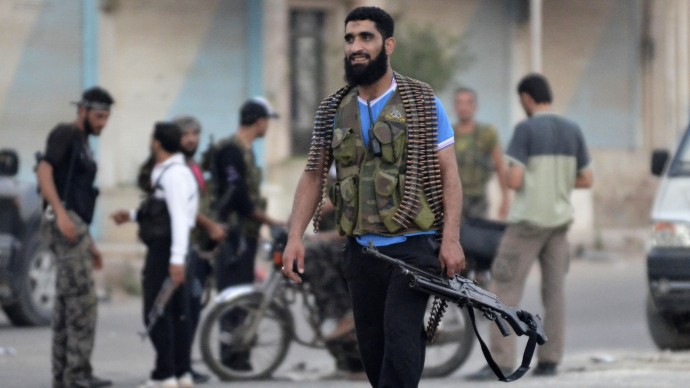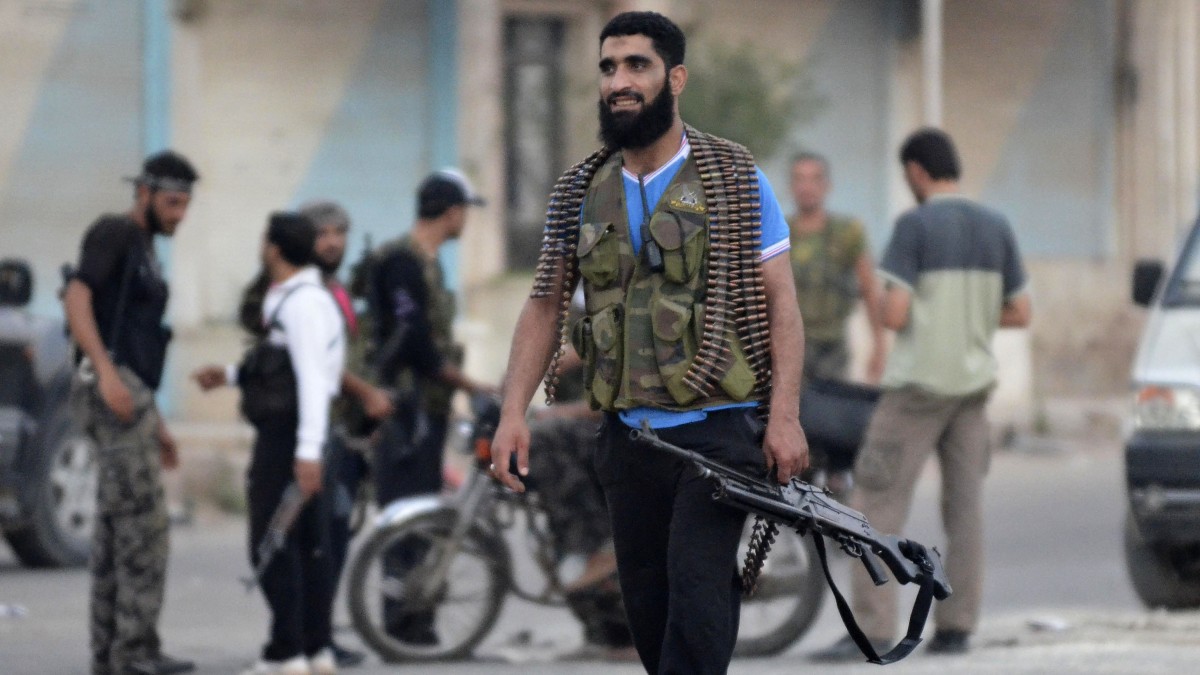
(MintPress) — President Barack Obama signed a “secret order” Thursday authorizing the CIA to provide material and intelligence assistance to Syrian rebels attempting the overthrow of Bashar Al-Assad’s regime. The 17-month civil war that has killed an estimated 20,000 has grown increasingly violent in recent weeks because of a strong rebel front in Aleppo, Damascus and other Syrian cities. A rash of defections in the Assad government has shown the fallibility of the regime, struggling to maintain control of the increasingly divided country.
Other countries, including Qatar, Saudi Arabia and Turkey have all pledged financial and material assistance to fighters, many of whom are non-Syrian fighters. The inflow of arms and financial support for the Syrian opposition could prove to be problematic given the large number of foreign fighters, many of whom are fighting as members of al-Qaida, Salafi and radical Jihadi organizations.
The executive order
Yesterday, before the announcement of the executive order, the State Department reportedly allocated $25 million for “non-lethal” assistance to the rebels. The U.S. has also pledged $64 million in humanitarian aid, including contributions to the World Food Program, the International Committee of the Red Cross and other aid agencies. An unidentified U.S. government source also confirmed that the U.S. has been closely collaborating with a secret command center operated by Turkey.
The base, or “nerve center,” of the opposition is located near the city of Adana, a city in Southern Turkey about 60 miles from the Syrian border. Saudi Arabia and Qatar have joined the U.S. in supporting the Free Syrian Army. The Gulf countries have reportedly financed and purchased light arms as well as anti-tanks weapons, including bazookas.
Adana is also home to Incirlik, a U.S. airbase which could be used for increased military assistance should the U.S. decide to intervene directly on behalf of the opposition.
The Obama administration has stopped short of calling for a Libya-style NATO intervention, although several senators and prominent officials have openly supported such a move. Sens. John McCain (R-Ariz.), Joseph Lieberman (I-Conn.) and Lindsey Graham (R-S.C.) called for the U.S. to use air strikes against Syrian forces in March. The trio publicly said that this was the “only realistic way to stop the slaughter and save innocent lives.”
Previously, the U.S. has tried to impose tough sanctions against Syria through the U.N. Security Council. However, resolutions calling for sanctions and for Assad’s removal have failed to gather the necessary support because of consistent vetoes by Russia and China.
International opposition is one reason Kofi Annan, the former U.N. Secretary General, announced his resignation yesterday as head of the U.N. special envoy to Syria. As fighting escalates, Annan’s six-point peace plan appears unlikely to de-escalate hostilities between rebel fighters and government forces. Annan expressed frustration with the countries that have hindered efforts to create a ceasefire and a comprehensive transition plan, saying:
“When the Syrian people desperately need action, there continues to be finger pointing and name calling in the Security Council. It is impossible for me or anyone to compel the Syrian government and also the opposition to take the steps to bring about the political process.”
Fighters have struggled desperately to make advances against Syrian government forces, relying mostly upon smuggled weapons and stolen supplies. The ranks of the Free Syrian Army, the largest opposition force, are a mix of volunteers and defecting soldiers. While there is no accurate count of their numbers, some analysts believe their ranks may have swelled to nearly 40,000 in recent months.
Reports from Damascus indicate that arms and material support continue to be in short supply. The Economist article, “How Long Can the Regime Last?” published late last month, describes the continued scarcity of arms. Sources say there may be only one “Roosi,” or AK-47 rifle, for every three rebel fighters. These sought after rifles now fetch up to $1,500 on the black market, a five-fold jump since fighting began. Reliable bullets can fetch up to $2 each.
Foreign fighters and future concerns
The ongoing fight for Syria has been complicated by reports indicating that dozens of foreign fighters continue to enter the country each day. Many of the foreign fighters are from Chechnya, Pakistan and Arab Gulf countries. The majority subscribe to conservative Jihadist and Salafi ideologies. At several points throughout the uprising, foreign journalists have spoken to a number of foreign fighters claiming to fight as part of the al-Qaida terrorist organization.
There are, by some accounts, whole militias of foreign fighters spread across the country.
According to Martin Chulov, a foreign correspondent for the Guardian newspaper, “Free Syria Army officials in southern Turkey say there are at least four groups not aligned to them who are fighting regime forces, a Libyan guerrilla brigade among them, although the actual number is likely to be higher.”
The uncertain number of foreign fighters is concerning given the recent U.S. decision to provide robust support to Syrian fighters. If Assad goes the way of Gadhafi, the power vacuum could create a dangerous situation with enormous security challenges for any transitional government.
Turkish support and the battle for Aleppo
Despite this risk, Turkey has led the growing number of states providing assistance to the rebel forces. As early as November 2011, Turkish Prime Minister Recep Tayyip Erdogan called for Assad, “the coward,” to step aside saying before Parliament in Ankara, “Quit power before more blood is shed … for the peace of your people, your region and your country.”
Since that time Turkey has allowed the Free Syrian Army to establish a base in Southern Turkey. From this base, fighters have organized supply routes and attacks against Syrian army installations.
Rebel fighters have made significant advances in the past few days, capturing major parts of Aleppo, Syria’s largest city and financial center. Reports indicate that rebels were shelling the airport Thursday, the first confirmed incident of rebels using heavy artillery in their fight against the regime.
Abou Firas, an activist in Aleppo, used a satellite phone to contact the New York Times, saying, “We have seen military reinforcements making their way to Aleppo. We were worried about massacres, but now we are issuing a warning about a war of extermination to be launched by the regime.”
Many political analysts have called the fight for Aleppo a tipping point in the long-running battle between rebel fighters and regime forces. A victory for rebel fighters would likely signal the “beginning of the end” of the Assad regime. Conversely, if Assad is able to push back fighters, the protracted civil war could increase the possibility of direct international intervention in Syria.
Turkey, like the U.S., has not called for direct intervention, but was pushed to the brink of an attack when Syrian forces shot down a Turkish fighter jet flying over the Mediterranean in international airspace in late June. The pilot and co-pilot were killed in the incident which inflamed tensions between Ankara and Damascus. Bashar Al-Assad later expressed regret for the incident.


